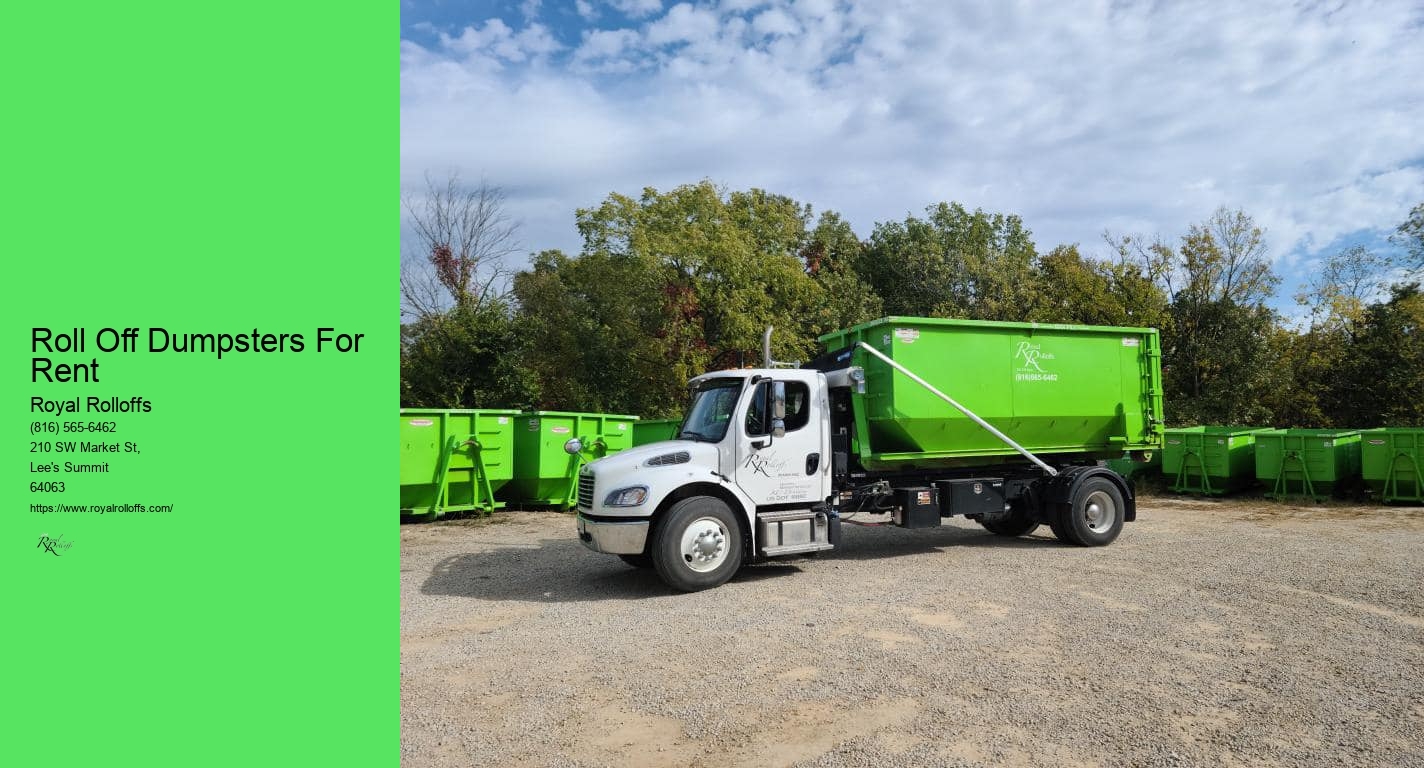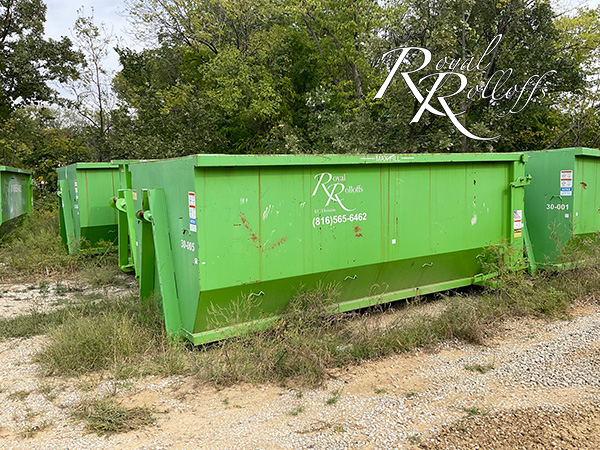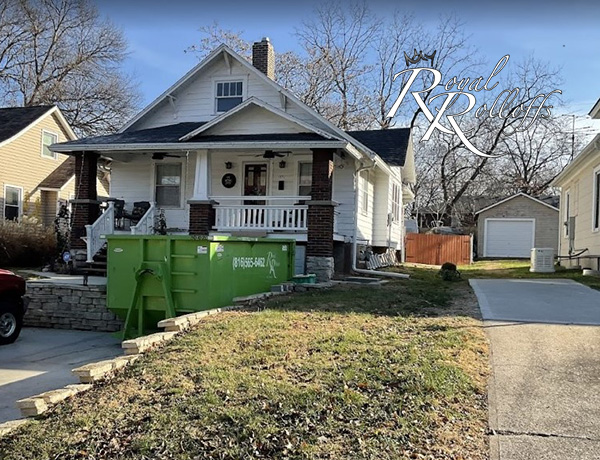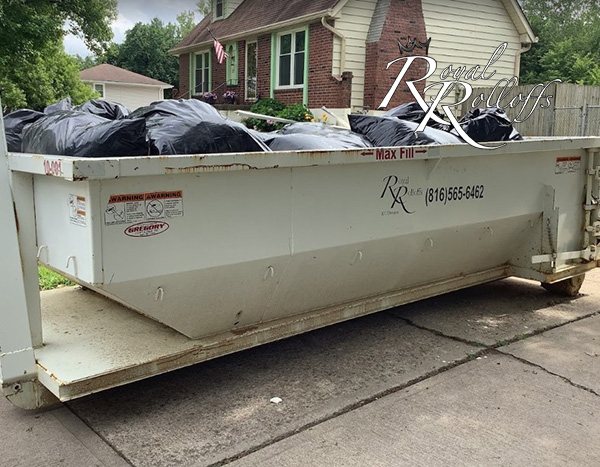

That's how we've earned repeat business from companies that can't afford waste-related delays. We give them the container, the schedule, and the information they need to do the job. We provide guidance on what's acceptable and offer options for special waste if needed. At Royal Rolloffs, we want every customer to feel confident in their choice. Royal Rolloffs focuses on clean and simple dumpster service that matches how real construction jobs operate. We know that timelines on construction projects move fast.
This helps us match the dumpster to the project's needs and avoid unnecessary swaps or overflows. We also confirm the timing that works best. That way, there's no guessing and no unnecessary delays. We also know the rules for different locations.
We also help with placement rules and city permits if needed. Most kitchen remodels use mid-sized dumpsters that balance volume with space efficiency.
If a project needs more than one container or a faster pickup schedule, we set that up. Many customers find more to throw out once they get started. We provide dumpsters built to handle sharp, heavy, and uneven materials that come down during these projects. Weight limits matter in commercial work. Debris We explain what's allowed and help find other options if needed.
We ask about space, access, and any special considerations. Before anyone rents a dumpster, we help them understand a few key points. We aim to support the crew with containers that fit the project and services that stay one step ahead. We help companies clear it all without slowing down the remodel.
We explain how to load flooring waste efficiently and evenly. We handle requests for spring cleaning, minor renovations, furniture disposal, yard projects, and moving-related cleanouts. Our team offers tips for using the space well, placing flat items first, breaking down pieces, and avoiding overflow. That helps us recommend a container that fits the volume without being too large or too small. Dumpster cost
A few items in the garage turn into a whole wall of boxes. The goal is to keep the workspace clean without disrupting business operations. We handle the waste so companies can get back to work. Warehouse cleanouts involve volume, weight, and tight schedules.
We aim to keep the cleanup efficient and straightforward without extra trips or stress. We give every customer clear loading instructions. We explain how to spread the weight and how high to stack the debris. A contractor usually needs fast drop-off, scheduled swaps, and reliable timing. Our team understands how important timing is during roofing and siding jobs.
Communication stays clear, and we handle changes without confusion. Some facilities want dumpsters near shipping docks. We ask what kind of renovation is planned and how much material will be removed. It keeps the cleanup on track.
We also explain what each size is best for using simple terms. We show each crew how to load the dumpster in a way that uses the space well and stays within weight limits. If there are restrictions or permit needs, we also guide the customer through that process. A spare bedroom fills with things no one has touched in years.
Then, we choose a dumpster that can handle the volume and weight. We explain why some items must be handled differently and offer solutions if they require separate removal. We also provide clear rules about what can go in the dumpster.


Others generate yard debris, roofing shingles, or concrete. Our service starts with a phone call and ends with the waste gone, exactly when it needs to be. We also help explain what can be loaded into the dumpster. If the job spans multiple days or shifts, we stay available and adjust quickly to any changes. A half-full dumpster loaded with bricks or concrete can reach its weight limit fast.
We help people prepare ahead so they don't waste time during the rental period. We explain how size affects more than just volume. We aim to make one part of the process easier. We stay in touch, so there are no last-minute surprises or delays.
When someone calls, we discover what debris they need to remove. Yard dumpsters We listen, we ask the right questions, and we explain things without using complicated terms. The fewer surprises on delivery day, the smoother everything goes. Before delivery, we ask about the surface type and clearance.
Many jobs happen while the business continues in other parts of the building. If plans change, we adjust the pickup or drop-off schedule to keep everything on track.
Others need them out of the way during daytime operations. They rely on us because we stay consistent, show up as promised, and solve problems without complicating things. We help homeowners remove the clutter without delay or hassle. We also consider the surface type-grass, gravel, or pavement-and explain how to keep the bin stable and avoid damage. We help people remove broken furniture, boxes of unused items, old rugs, and more in one clean-up.
These jobs get heavy fast, and we help distribute the load properly to avoid surprises. We work around these needs by scheduling off-hours delivery or quiet-zone placement. Missed pickups or late deliveries can throw off their day.

Crews don't want to stop midway to wait for a bin swap or risk debris blowing across the yard.
When a container fills up with drywall, framing scraps, or broken pallets, we're ready to get it out of the way and replace it quickly. A good fit saves time and money. These jobs generate debris fast-old fixtures, shelving, packaging, furniture, broken pallets, and construction scraps. We'd rather someone have a little extra space than come up short.
You’ll be charged $20 per day if you need to extend your rental. If your load exceeds the weight limit, there’s a $60 fee for each additional ton. If the driver has to move debris that is stacked above the fill line, there’s a $100 charge. Deliveries or pickups scheduled outside normal hours come with a $100 after-hours fee. And if there are any tires in the dumpster, you’ll be billed $50 per tire.
They strive to accommodate your preferred time of day but cannot guarantee an exact window
10‑yard includes 1 ton, priced at $370/week, 20‑yard includes 2 tons at $395/week, and 30‑yard includes 3 tons at $420/week
Prohibited items include dirt, concrete, tree waste, wet paint, oil/fuel tanks, chemicals, refrigerators/freezers, tires, and other hazardous materials
They often accommodate distant locations; extra distance-based fees may apply